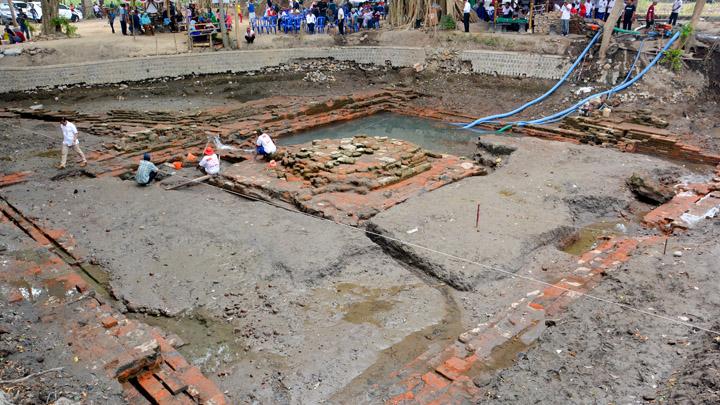
TEMPO.CO, Jakarta - Ali Mutia is now content with his quiet life. The old man will turn 80 years old in two years. In retirement, he tends to a small farm behind his house at Lindu, a few hours' drive from Palu, the capital of Central Sulawesi province.
Ali gets along well with his neighbors in the small town where he lives. In addition to his everyday farming activity, he is an outspoken activist who does not hesitate in sharing information with anyone wanting to know what really happened in 1965. He is, in fact, one of the few remaining live victims of the massacre that unfolded in the aftermath of the failed coup.
"To anyone interested, I'll explain that the mastermind behind the coup in 1965 was not the PKI," Ali said, referring to the Communist Party of Indonesia. "They were just scapegoats."
In the 1960s, Ali headed the Indonesian Farmers' Front (Barisan Tani Indonesia, or BTI), which the emerging New Order considered an affiliate of the PKI. When the September 30, 1965 coup known by its abbreviated form G30S for Gerakan 30 September occurred, Ali was in Jakarta. He witnessed how quickly life could unravel for those suspected of being communists or their followers in Indonesia.
Thinking that his Central Sulawesi hometown would be safer, Ali returned to Palu within the same year. Now branded as a former PKI member, he was made to report to the nearest military post in Palu. "We were given a number and had to inform (the military) what it was," he told Tempo English two weeks ago.
Not long after, Ali was detained and put in prison for being a communist. He was put on trial and later condemned as a Class A political prisoner. In the late 1960s, civilians who were arrested for involvement with PKI were divided into three groups: Class A, for those who were directly involved in G30S; Class B, for active supporters of the party; and Class C, for PKI members who were not actively participating.
Ali recounted how he was subjected to forced labor inside the Palu prison and sometimes outside on the street, under heavy guard by the military. "They made us do various work, from easy tasks like sweeping the street and painting a building to more strenuous tasks, like doing construction work," he said.
After 18 years in prison, he was released but soon found readjusting to normal life in his community quite difficult. His neighbors treated him as a pariah, excluding him from social activities with friends and neighbors he used to know. Sometimes, teenagers would stand in front of his house, yelling what a bad person he was.
Fifty-one years after the 1965 tragedy that shook the country, Ali feels conditions are changing for the better. Dialog and discussions about events in 1965 can take place openly, and many more people, especially the younger ones, have become curious about what really happened.
"I had people come up to me and ask questions," he said. "I also had people express their regret because of what they had done in the past."
For Ali, all these things could lead to Central Sulawesi taking the to road to reconciliation. At the national level, however, he realizes things would not go as smoothly.
Yet, he remains hopeful. "People now want to understand," he said. "I believe we can achieve reconciliation eventually." (*)
Read more inspiring Outreach stories in Tempo English Weekly News Magazine























